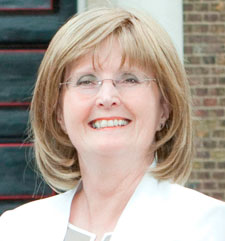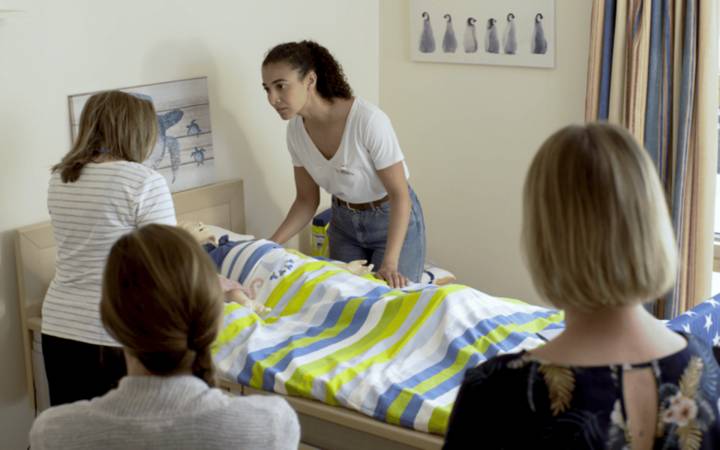Professor delivers keynote address at international nursing research conference
Posted Monday 8 April 2013
 A senior academic from Kingston University and St George's, University of London has highlighted the challenges and opportunities of studying conditions managed by patients in their homes at a major international research conference.
A senior academic from Kingston University and St George's, University of London has highlighted the challenges and opportunities of studying conditions managed by patients in their homes at a major international research conference.
In a keynote address at the conference staged by the Royal College of Nursing in Belfast, Professor Vari Drennan reflected on the issues faced by nurses delivering care to patients outside hospital settings, in what she described as 'hidden places'.
Professor Drennan contended that nurses were well placed to ask the questions and conduct the research that helped give people receiving health care in such situations a voice. Their findings could inform nursing practice involving patients and family carers managing stigmatised and hidden conditions and challenge health care cultures, she said.
The growing number of people with chronic conditions or non-communicable diseases placed a significant demand on health care systems globally, Professor Drennan added. Against a backdrop of changing demography and resource constraints, policies increasingly emphasised self management, care in the home and strategies to reduce the need for hospital admission.
Care and management in the home was hidden from the wider health care system's gaze which, for those with chronic conditions, could bring feelings of stigma, Professor Drennan said. The delivery of appropriate, acceptable, safe and effective care in such settings confronted nurses with multiple issues, she added. Professor Drennan cited her own study focusing on managing incontinence in people with dementia living at home, funded by the National Institute of Health Research, as an example of work examining conditions perceived to involve taboo subjects.
Professor Drennan is an expert in health care and policy research at the Faculty of Health, Social Care and Education, run jointly by Kingston University and St George's, University of London.
- Find out more about research at the Faculty of Health, Social Care and Education.
Contact us
General enquiries:
Journalists only:
- Communications team
Tel: +44 (0)20 8417 3034
Email us



